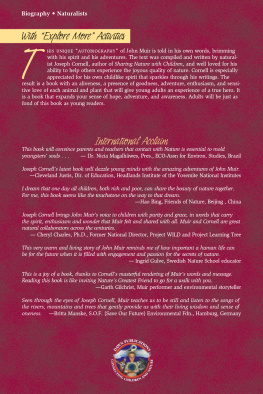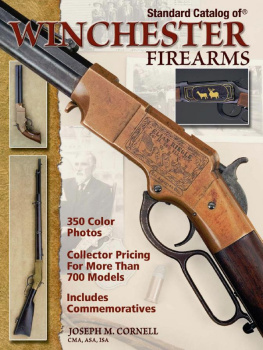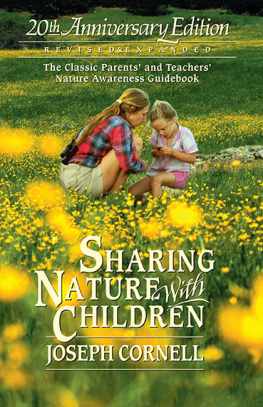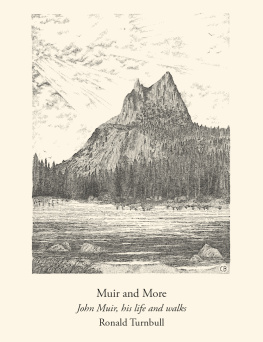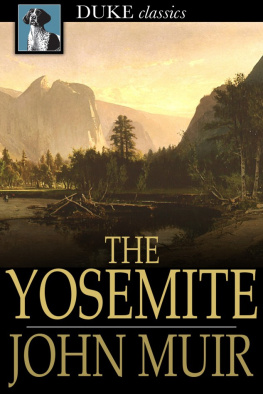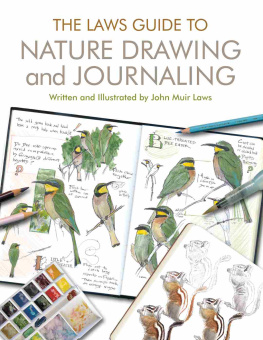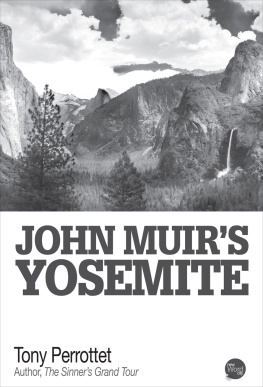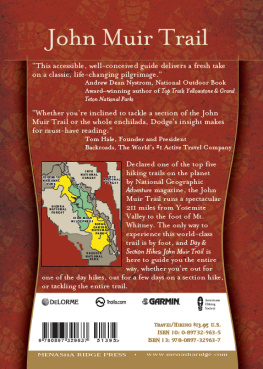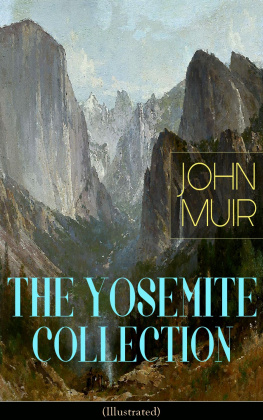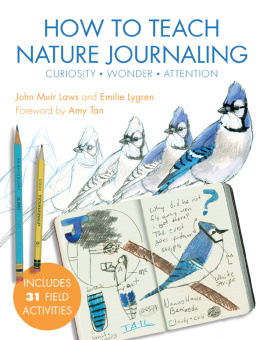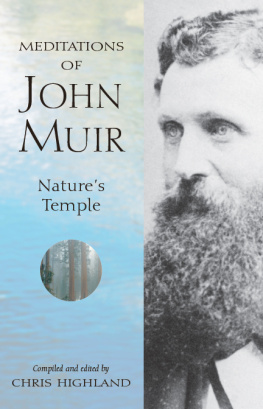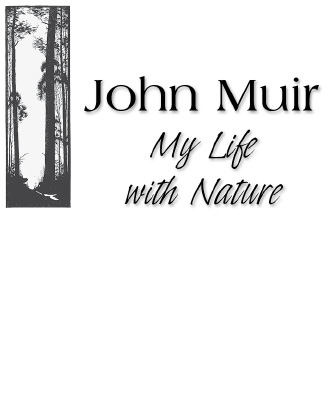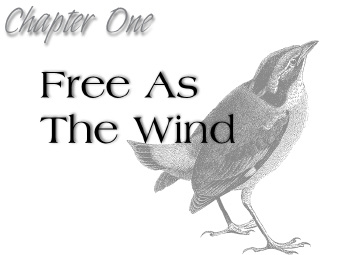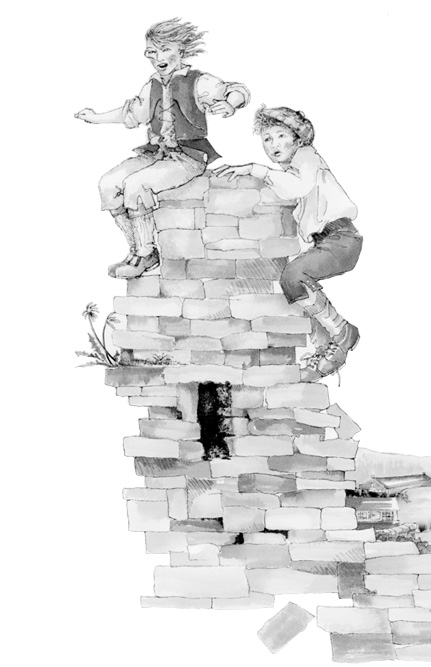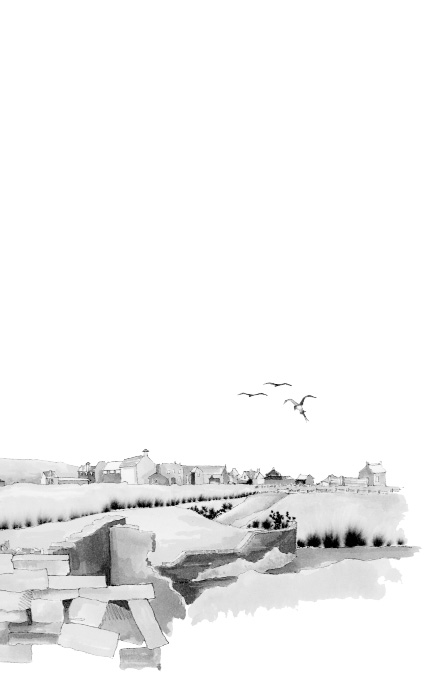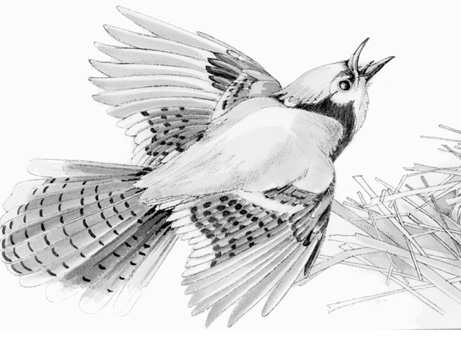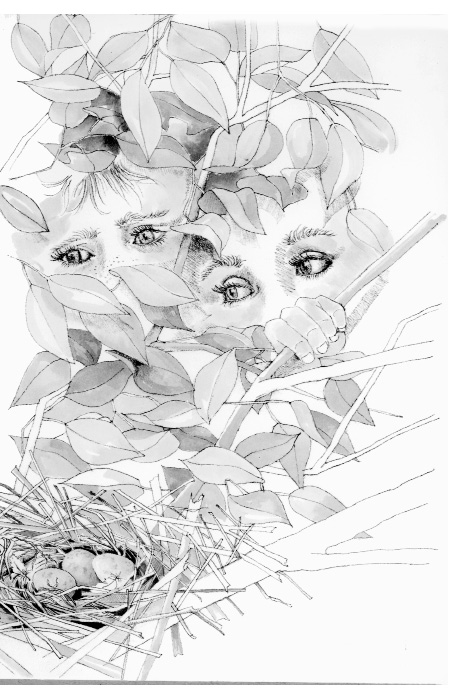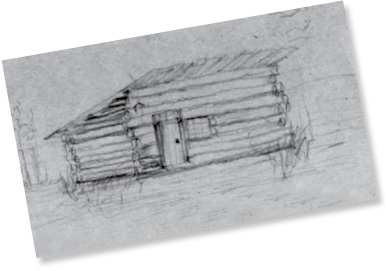
By Joseph Cornell
Author, Sharing Nature with Children
Illustrations by Elizabeth Ann Kelley
and Christopher Canyon
A Sharing Nature with Children Book
Dawn Publications
Dedication
May we all, like John Muir,
feel a spirit of wonder and joy in the natural world. Joseph Cornell
Copyright 2000 Joseph Cornell
All rights reserved. No part of this book may be reproduced or transmitted to any form or by any means, electronic or mechanical, including photocopying, recording, or by any information and retrieval system, without written permission from the publisher.
Library of Congress Cataloging-in-Publication Data
Muir, John, 1838-1914.
John Muir : my life with nature / [compiled] by Joseph Cornell.
1st ed.
p. cm.
Summary: A biography of the man known as father of Americas national parks and an influential conservationist, told in the first person, using Muirs own words.
ISBN 1-58469-009-7 (pbk.)
1. Muir, John, 1838-1914Juvenile literature. 2. NaturalistsUnited
StatesBiographyJuvenile literature. 3. ConservationistsUnited
StatesBiographyJuvenile literature. [1. Muir, John, 1838-1914. 2.
Naturalists. 3. Conservationists.] I. Title: My life with nature.
II. Cornell, Joseph Bharat. III. Title.
QH31.M9 A3 2000
333.72092dc2100-008827
DAWN Publications
12402 Bitney Springs Road
Nevada City, CA 95959
800-545-7475
Email: nature@DawnPub.com
Website: www.DawnPub.com
Cover design by Elizabeth Ann Kelley
Design and computer production by Andrea Miles
Table of Contents
A Note from the Author4
I. Free As the Wind5
II.Backwoods Genius11
III.Only Wild Beauty16
IV.Favorite Animals22
V.Forever a Mountaineer27
VI.Snow Flowers, Ice Rivers and a Dog36
VII.Make the Mountains Glad45
VIII.Fellow Mortals52
IX.Natures Goodness57
Explore More62
Be True to Yourself63
One Large Family65
Joy in the Midst of Hardship66
This Whole Wide Beautiful World67
True Wealth71
What is the Secret of it All?72
John Muir: Who Was He?73
Close to Nature74
Further Reading76
A Note from the Author
No one brought nature to life like John Muir. His great love for all living things gave him a rare understanding of the natural world. Birds, bears and flowers all revealed their secret lives to him. When Muir spoke of his encounters with wild animals, trees, and mountain storms, his listeners said it felt as if they were there, experiencing the adventure with him. Muir also excelled at sharing nature through his writings. They are deeply beautiful, filled with wonder and joy for nature. It has been said that Muir was the only person who could turn a government report into poetry!
To stay true to the spirit of Muir as clearly and fully as possible, I have told his story as if he were alive, using his own words and colorful expressions as often as possible. I have, however, simplified and condensed his words to make them more accessible to young readers. I have also linked the events of this story to keep a smooth, narrative flow, writing as I hope Muir would have written. It is, after all, his story.
A native of Scotland, Muir today is remembered as the father of Americas national parks. Born in 1838, Muir is considered by many to be the most influential conservationist of modern times. His love of nature continues to inspire people everywhere to take up the cause of preservation.
Joseph Cornell
Nevada City, California
A s a boy I was fond of everything that was wild. And all my life Ive grown fonder and fonder of wild places and wild creatures. Fortunately, around my native town of Dunbar, by the stormy North Sea, there was plenty of wildness. My playmates and I were as wild as the land itself. We loved to wander by the sea and through the fields to hear the birds sing. We often would run long races through the countryside, to see who was fastest. Or wed walk along the seashore and gaze in wonder at the shells and seaweed, eels and crabs. Best of all we liked to watch the winter storm-waves crash against the rocky shore.
In the spring we stood for hours enjoying the singing and soaring of the skylarks. From the grass where the nest was hidden, the male would suddenly rise as if shot up into the air. Hovering at thirty or forty feet, hed pour down the most delicious melody: sweet, clear and strong. Then he would soar higher and higher until lost to sight. To test our eyes, we watched the lark until he was but a faint speck in the sky. I see him yet! we would cry, I see him yet! Finally he would soar beyond all our sight, although we could still hear his glorious music. Then suddenly stopping, the singer would appear, falling like a bolt straight down to his nest.
One of our best playgrounds was the famous old Dunbar Castle. We tried to see who could climb the highest on the crumbling peaks and crags.
A favorite playground of mine was the abandoned Dunbar Castle, which was over a thousand years old. My friends and I would climb its crumbling walls to see how high we could go. If we did something that tested our courage or daring, we called it a scootcher.
One day when I was about nine, we discovered a way into the dungeons below the castle walls. When we came to a dark, deep pit, the other boys were too afraid to go in. I handed my small candle to a friend and lowered myself over the edge. Carefully I made my way down the rough rock walls. In the blackness I couldnt see the bottomthe hole seemed to go on forever. My friends kept calling, Are you doon, Johnnie, are you doon!? But I couldnt answer, because I was concentrating so hard on finding safe handholds and footholds. Finally I reached the bottom and called out, Aye, Im doon! They were greatly relieved, and when I finally climbed up again, they shouted, Hurrah for Johnnie! This was the greatest scootcher of them all!
One evening when I was eleven, my father announced to my brother David and me, Boys, you dont need to learn your lessons tonight, for were going to America in the morning! We were thrilled by the news, because wed been reading about the wonders of the American wilderness in school.
Pure wildernesshow utterly happy it made us! Nature streaming into us, teaching her glorious living lessons.

